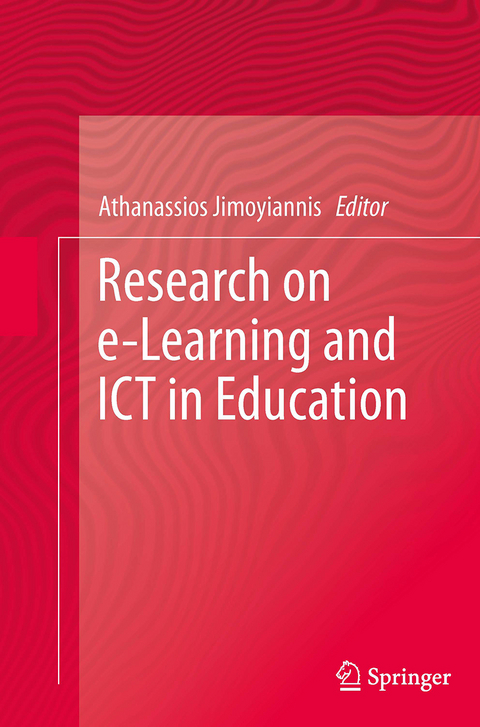
Research on e-Learning and ICT in Education
Springer-Verlag New York Inc.
978-1-4939-4088-2 (ISBN)
-1. School 2.0: rethinking the future of schools in the digital age. -2. MirandaMods: from practice to praxis in informal professional learning contexts. -3. Synthetic worlds and virtual citizens: Experimental ethnographic simulation, virtual autotopography and emerging citizenship identity in young people. - 4.Teaching in the Knowledge Society: between technology and competences. - 5. Digital divide, students’ use of the Internet and emerging forms of social inequalities. - 6. Supporting teachers in orchestrating CSCL classrooms. - 7. Reorienting teacher education to address sustainable development through WikiQuESD. - 8. Can ICT reduce drop-out rates among new teachers? A qualitative study in Canadian student teachers. -9. Examining the use of text corpora and online dictionaries as learning tools: Pre-service teachers' perspectives. - 10. The Cypriot public primary school principals’ self-perceived competence and use of ICT for personal, teaching and administrative purposes. - 11. Instructional design on controlling the quality of collaboration in a CSCL setting through illusionary adaptive support. - 12.The design and development of a wiki task in undergraduate education: Retrospects and prospects. - 13.Educational blogging: Developing and investigating a students’ community of inquiry. - 14.Experiencing 3d simulated space through different perspectives. - 15.Educational robotics and teaching introductory programming within an interdisciplinary framework. - 16.Teaching electric circuits by guided inquiry in virtual and real laboratory environments. - 17.Games-based learning and Web 2.0 technologies in education: Motivating the "i-Learner" generation. - 18.Presence in a collaborative science learning activity in Second Life. -19. Emotional interaction in e-Learning. - 20. Virtual models of conic sections. -21. Towards community-based open educational resources: Tools for developing and managing IEEE LOM application profiles. -22.Restrictions and abilities of SCORM: a path to adaptive course development.
| Erscheinungsdatum | 11.08.2016 |
|---|---|
| Zusatzinfo | 77 Illustrations, black and white; XXII, 316 p. 77 illus. |
| Verlagsort | New York |
| Sprache | englisch |
| Maße | 155 x 235 mm |
| Themenwelt | Schulbuch / Wörterbuch ► Unterrichtsvorbereitung ► Unterrichts-Handreichungen |
| Geisteswissenschaften ► Psychologie ► Pädagogische Psychologie | |
| Informatik ► Software Entwicklung ► User Interfaces (HCI) | |
| Sozialwissenschaften ► Pädagogik ► Schulpädagogik / Grundschule | |
| Schlagworte | Computer supported collaborative learning • Digital Literacy • Distance Learning • e-Assessment in education • e-Content development and delivery • E-Learning • ICT and lifelong learning • ICT-enhanced education • ICT in Education • ICT integration in teaching and learning • Instructional design and e-learning • Learning Technologies • Pedagogy and e-Learning • Technology and e-Learning • Wireless and mobile technologies for learning |
| ISBN-10 | 1-4939-4088-0 / 1493940880 |
| ISBN-13 | 978-1-4939-4088-2 / 9781493940882 |
| Zustand | Neuware |
| Haben Sie eine Frage zum Produkt? |
aus dem Bereich


